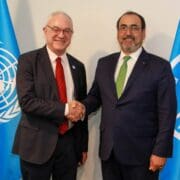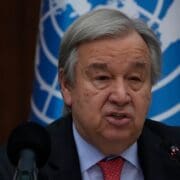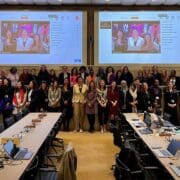Black Immigrant Daily News
Commonwealth Day will be celebrated on Monday with observances, speeches, exhibitions and cultural events across the 56 Commonwealth member countries.
With ‘Forging a Sustainable and Peaceful Common Future’ as its theme, the day aims to unite 2.5 billion Commonwealth citizens in celebration of their shared values and principles, and in pursuit of a common future, centred on sustainability and peace.
This will be the first Commonwealth Day presided over by His Majesty King Charles III as King and Head of the Commonwealth. The day will also mark the tenth anniversary of the signing of the Commonwealth Charter, which outlines the values and principles that unify the 56 Commonwealth countries, representing one-third of humanity.
In her Commonwealth Day Message, the Commonwealth Secretary-General Patricia Scotland KC, paid tribute to Her late Majesty The Queen for her seven decades of service and welcomed His Majesty The King for his first Commonwealth Day as the new Head of the Commonwealth.
Speaking on the role of the Commonwealth in her message, she said:
“We stand together now to face the challenges of the moment and seize the opportunities of tomorrow. Where there is violence and conflict, we work for peace. Where there is insecurity, we protect the culture, process and institutions of democracy. Where there is poverty, we tackle it. Where there is injustice, we challenge it.
“Where our brothers and sisters have their lives threatened and disrupted by the impacts of climate change, we stand with them, working tirelessly for climate action and a more sustainable world. I believe profoundly that our family of 56 nations and 2.5 billion people is stronger, more vibrant, more connected and more purposeful than ever.”
Drawing attention to the growing co-operation within the Commonwealth at a time of polarisation, Secretary-General Scotland added: “Our unique qualities and advantages mean that the Commonwealth in 2023 is not simply a part of the international system, it is a beacon within it. These qualities shine in the fact that, with a multilateral system under strain, the Commonwealth is growing, precisely because of what we stand for and what we can deliver.”
She continued: “So, on this tenth anniversary of our [Commonwealth] Charter, as we renew our commitment to its values and to each other, let us resolve together to ensure that in the years to come, we make the peaceful and sustainable common future we all strive for a reality for the whole Commonwealth.”
Around the Commonwealth, cities will host inter-faith, multi-cultural observances to mark the day. One of the largest gatherings will be the traditional service at Westminster Abbey in London and will be attended by The King, the Commonwealth Secretary-General, senior government officials, other dignitaries and hundreds of young people.
At the service, the theme will be expressed through musical performances, testimonies and readings from individuals representing several Commonwealth countries, including ‘Amalgamation Choir’, an all-female choir from Cyprus.
Commonwealth Day has been celebrated on the second Monday in March every year since 1977. In recent years, there has been a shift away from a single-day observance towards a full-week celebration, with Commonwealth Day as its focal point.
This year, as part of the Commonwealth of Nations Flag for Peace initiative, each Commonwealth country and every UK city will receive a flag, which they can raise on Commonwealth Day in celebration of the values of the Commonwealth Charter, including democracy, human rights, sustainable development, equality and respect.
Parliamentarians, mayors and high commissioners in Africa, Asia, the Caribbean and Americas, the Pacific and Europe will also mark the day with various activities, including speeches and cultural events.
The Commonwealth Secretariat has also produced a special quiz for students to learn more about the modern Commonwealth and its diverse membership. Schools around the Commonwealth can download and use the quiz free of charge.
Donate At Caribbean News Service, we do not charge for our content and we want to keep it that way. We are seeking support from individuals and organisations so we can continue our work & develop CNS further.
NewsAmericasNow.com











